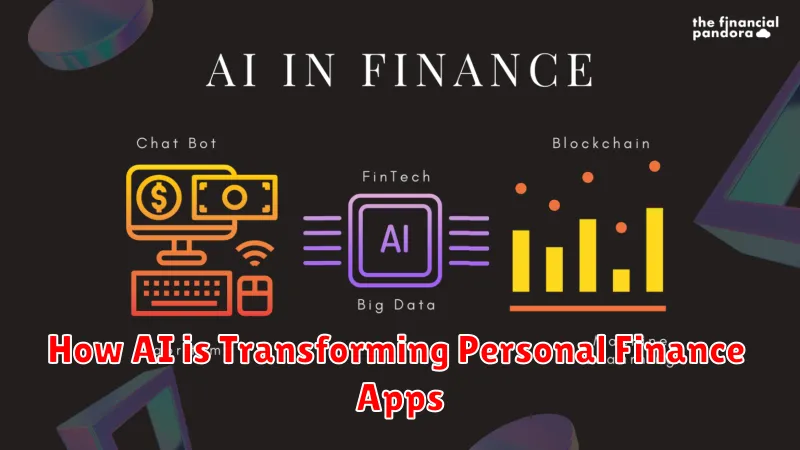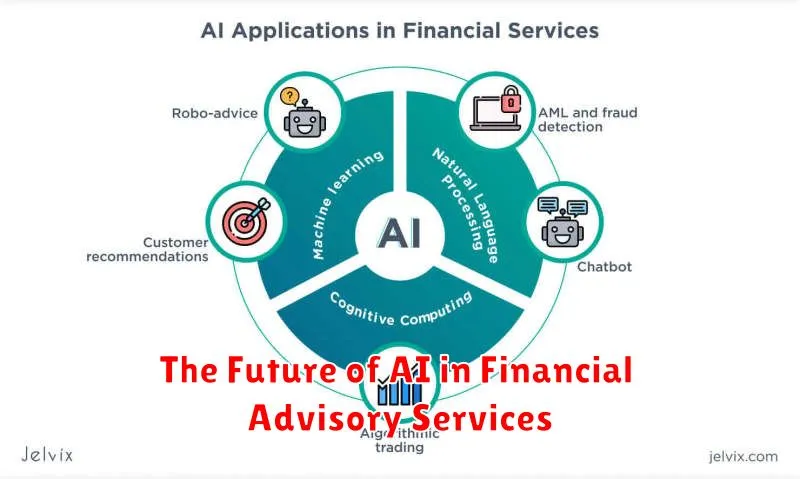As technology continues to advance at an unprecedented rate, Artificial Intelligence (AI) is transforming various industries, including personal finance management. The future of AI in personal finance holds immense potential to revolutionize the way individuals manage their money, providing them with intelligent tools and insights to make informed financial decisions. With the ability to analyze vast amounts of data, identify patterns, and offer personalized recommendations, AI-powered financial tools are poised to empower individuals with greater control and efficiency over their finances.
From automated budgeting and investment strategies to personalized financial advice and fraud detection, AI’s influence in personal finance is rapidly expanding. As AI algorithms become more sophisticated, they will be able to provide even more tailored and accurate guidance, helping individuals achieve their financial goals and navigate the complexities of the modern financial landscape. This article explores the transformative potential of AI in personal finance, delving into its key applications, benefits, and challenges, and ultimately examining how it will shape the future of financial management.
How AI is Transforming Personal Finance Apps

Artificial intelligence (AI) is revolutionizing the way we manage our personal finances. AI-powered personal finance apps are making it easier than ever to track spending, budget, invest, and achieve our financial goals.
One of the most significant ways AI is transforming personal finance apps is through automated budgeting. By analyzing spending patterns, AI algorithms can create personalized budgets that are tailored to individual needs. These algorithms can also identify areas where users can save money and suggest ways to optimize spending.
Another key benefit of AI-powered personal finance apps is personalized financial advice. These apps can provide insights and recommendations based on individual financial goals, risk tolerance, and spending habits. AI can also help users find the best financial products, such as loans, investments, and insurance policies.
AI is also playing a crucial role in fraud detection. By analyzing transaction data, AI algorithms can identify suspicious activity and alert users to potential fraud. This can help protect users from financial losses and keep their money safe.
Moreover, AI-powered personal finance apps are becoming increasingly sophisticated in their ability to predict future financial needs. By analyzing data on past spending, income, and market trends, these apps can provide users with insights into their potential future financial requirements, allowing them to plan accordingly.
As AI technology continues to advance, we can expect to see even more innovative and transformative applications in personal finance. From AI-powered virtual financial advisors to personalized investment strategies, the future of personal finance management is promising.
The Benefits of AI in Financial Planning
Artificial intelligence (AI) is revolutionizing the way we manage our finances. AI-powered tools offer a range of benefits for both individuals and financial advisors, making it easier than ever to achieve financial goals and make informed decisions.
One of the most significant benefits of AI in financial planning is its ability to personalize financial advice. By analyzing vast amounts of data about an individual’s financial situation, including income, expenses, investments, and goals, AI algorithms can create personalized financial plans tailored to their specific needs. This level of personalization ensures that recommendations are relevant and actionable, leading to more effective financial management.
AI also excels at automating repetitive tasks, freeing up financial advisors to focus on higher-level activities. For example, AI can automate tasks such as data entry, portfolio rebalancing, and generating reports, saving time and reducing the risk of human error. This efficiency allows advisors to dedicate more time to providing personalized advice and building stronger client relationships.
Another key benefit of AI is its enhanced risk management capabilities. By analyzing market trends and historical data, AI algorithms can identify potential risks and opportunities, helping investors make more informed decisions. This data-driven approach can help mitigate risk and potentially maximize returns.
AI also plays a crucial role in improving financial literacy. By providing accessible and easy-to-understand financial insights and recommendations, AI-powered tools can empower individuals to take control of their finances and make informed decisions. This increased financial literacy can lead to better financial outcomes for individuals and society as a whole.
In conclusion, AI is transforming the landscape of financial planning by providing personalized advice, automating tasks, enhancing risk management, and improving financial literacy. As AI technology continues to advance, we can expect even greater benefits and more innovative solutions to help individuals achieve their financial goals.
Top AI-Powered Personal Finance Apps
Artificial intelligence (AI) is rapidly transforming the way we manage our finances. AI-powered personal finance apps are becoming increasingly popular, offering a range of features that can help users budget, save, invest, and make informed financial decisions. These apps leverage machine learning algorithms to analyze spending patterns, identify areas for improvement, and provide personalized recommendations.
Here are some of the top AI-powered personal finance apps available today:
Personal Capital
Personal Capital is a comprehensive financial management platform that utilizes AI to provide insights into your spending habits, investment portfolio, and retirement planning. It offers features such as:
- Automated budgeting: Personal Capital analyzes your spending and categorizes it to help you track your budget.
- Investment management: The app provides portfolio analysis and recommendations to optimize your investments.
- Retirement planning: Personal Capital helps you project your retirement income and adjust your savings goals accordingly.
Mint
Mint is another popular AI-powered finance app that simplifies budgeting and tracking expenses. It connects to your bank accounts and credit cards to automatically categorize transactions and provide insights into your spending. Key features include:
- Budgeting: Mint allows you to set spending limits and track progress towards your financial goals.
- Bill tracking: The app reminds you of upcoming bill due dates to help you avoid late fees.
- Credit monitoring: Mint offers credit score tracking and alerts for potential fraud.
YNAB (You Need A Budget)
YNAB emphasizes a zero-based budgeting approach that encourages users to allocate every dollar of their income. It utilizes AI to help you:
- Plan your spending: YNAB guides you to create a detailed budget for every dollar.
- Track progress: The app provides insights into your budget performance and helps you identify areas where you can improve.
- Achieve financial goals: YNAB allows you to set financial goals and track your progress towards achieving them.
Acorns
Acorns is a micro-investing app that uses AI to round up your purchases to the nearest dollar and invest the spare change in a diversified portfolio of ETFs. It also offers features such as:
- Automated investing: Acorns automatically invests your spare change without any manual effort.
- Diversified portfolio: The app invests in a variety of assets to minimize risk.
- Personalized recommendations: Acorns provides investment recommendations based on your risk tolerance and financial goals.
Digit
Digit is an AI-powered savings app that analyzes your spending patterns and automatically transfers small amounts of money to a savings account. It aims to help you save money without having to think about it. Key features include:
- Automated savings: Digit analyzes your spending and transfers small amounts to your savings account.
- Goal-based savings: The app allows you to set savings goals and track progress towards achieving them.
- Personalized recommendations: Digit provides insights and recommendations to help you save more effectively.
These are just a few examples of the many AI-powered personal finance apps available today. As AI technology continues to advance, we can expect to see even more innovative apps that simplify our financial lives and help us make smarter decisions with our money.
Challenges in Implementing AI for Finance Management
While AI holds immense potential for revolutionizing personal finance management, several challenges hinder its widespread adoption. One significant obstacle is data privacy and security. AI algorithms rely heavily on user data, raising concerns about data breaches and misuse. Ensuring the confidentiality and integrity of sensitive financial information is paramount.
Another challenge is the lack of standardization and interoperability among AI-powered financial tools. Different platforms may use varying data formats, algorithms, and interfaces, making it difficult for users to integrate and manage their finances seamlessly.
Transparency and explainability are crucial for building trust in AI systems. Users need to understand how AI algorithms make decisions and the rationale behind their recommendations. This transparency is essential for accountability and responsible financial management.
Furthermore, regulatory uncertainty surrounds the application of AI in finance. Existing regulations may not adequately address the unique aspects of AI-driven financial products and services, requiring clear guidelines to ensure fairness and consumer protection.
Finally, access to quality data is essential for training effective AI models. Personal finance data can be complex and fragmented, making it challenging to acquire, clean, and process for AI applications. Bridging the data gap is crucial for improving the accuracy and reliability of AI-powered financial tools.
The Future of AI in Financial Advisory Services

Artificial intelligence (AI) is rapidly transforming the financial services industry, and financial advisory services are no exception. AI-powered tools are already being used to automate tasks, provide personalized financial advice, and improve the efficiency of financial advisors. As AI technology continues to evolve, it is poised to play an even more significant role in the future of financial advisory services.
One of the most promising applications of AI in financial advisory services is in the area of robo-advisory. Robo-advisors are AI-powered platforms that provide automated financial advice and portfolio management services. They use algorithms to analyze a client’s financial situation, risk tolerance, and investment goals, and then recommend a personalized investment portfolio. Robo-advisors are often more affordable than traditional financial advisors, making them accessible to a wider range of investors.
Another important area where AI is making a difference is in personalized financial planning. AI-powered tools can analyze vast amounts of data to identify individual financial needs and provide customized recommendations. For example, AI can help clients develop a budget, track their spending, plan for retirement, and manage debt.
Beyond robo-advisory and personalized financial planning, AI is also being used to improve the efficiency and effectiveness of financial advisors. AI-powered chatbots can handle routine tasks such as answering client questions and scheduling appointments, freeing up advisors to focus on more complex issues. AI can also help advisors analyze market data, identify investment opportunities, and manage risk.
The future of AI in financial advisory services is bright. As AI technology continues to advance, we can expect to see even more innovative applications that improve the quality and accessibility of financial advice. AI has the potential to democratize financial advice, making it available to everyone, regardless of their income or wealth. It is also likely to lead to a more personalized and data-driven approach to financial planning.
Case Studies: AI in Personal Finance
Artificial intelligence (AI) is rapidly transforming the personal finance management landscape, offering innovative solutions to help individuals take control of their finances. Here are some compelling case studies showcasing the power of AI in this domain.
Personal budgeting and spending analysis: Platforms like Mint and Personal Capital use AI-powered algorithms to automatically categorize transactions, track spending patterns, and provide personalized insights into financial behavior. These tools help users identify areas for improvement and make informed decisions about their finances. For example, Mint can analyze spending data to pinpoint categories where users overspend and suggest ways to cut back.
Investment management: Robo-advisors like Betterment and Wealthfront leverage AI algorithms to create diversified investment portfolios tailored to individual risk tolerance and financial goals. By automating investment decisions, robo-advisors provide accessible and affordable financial advice, even for those with limited financial expertise.
Fraud detection and prevention: Financial institutions are increasingly employing AI to detect and prevent fraudulent activities. AI algorithms can analyze transaction patterns, identify anomalies, and flag suspicious activity in real-time, significantly reducing the risk of financial fraud.
Personalized financial advice: AI-powered chatbots and virtual assistants are emerging as valuable resources for financial advice. These tools can provide answers to common financial questions, offer personalized recommendations, and even guide users through complex financial processes, such as loan applications or retirement planning.

